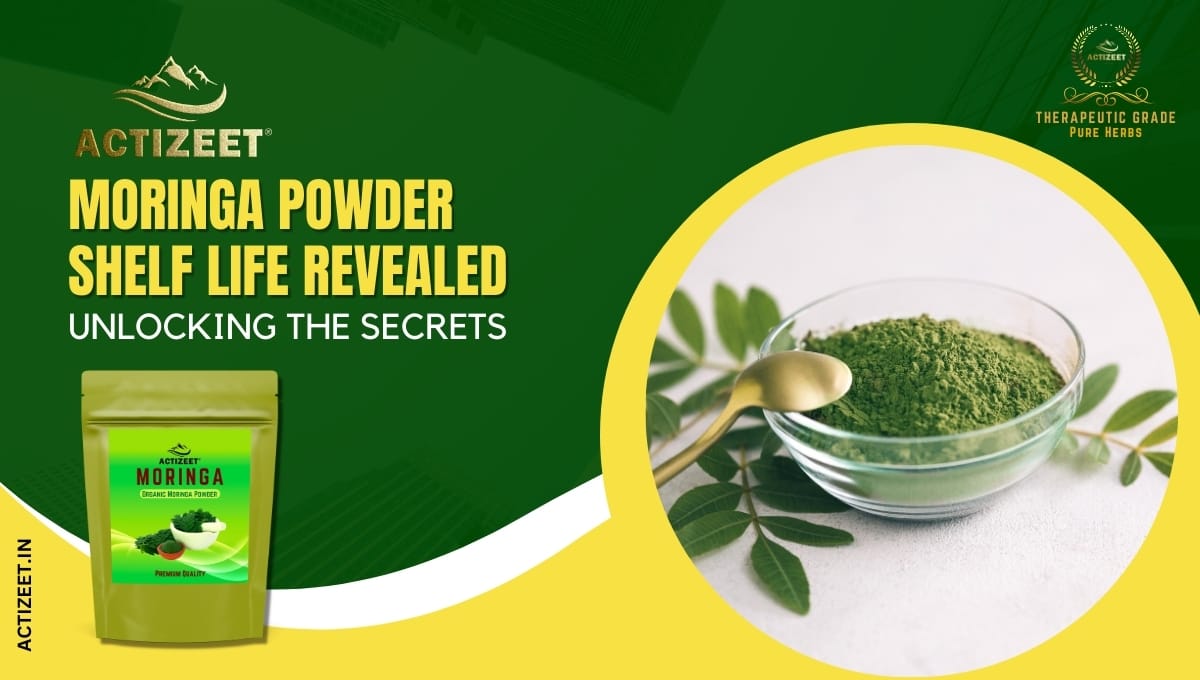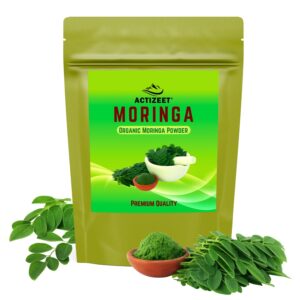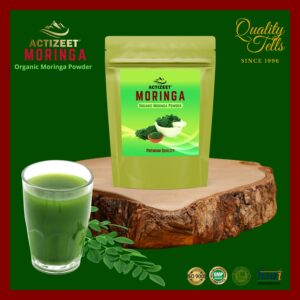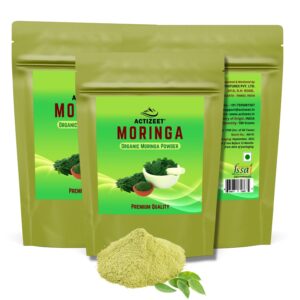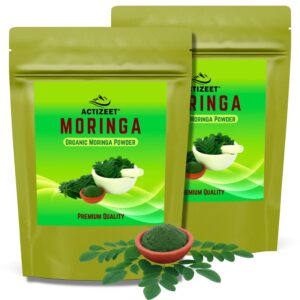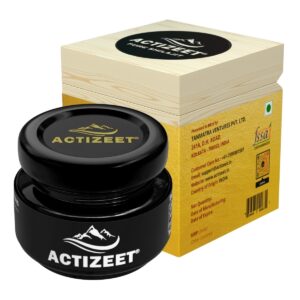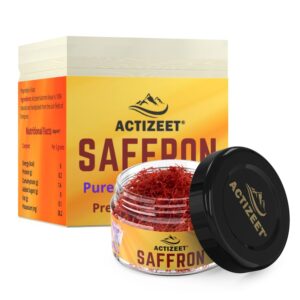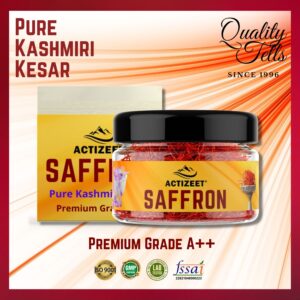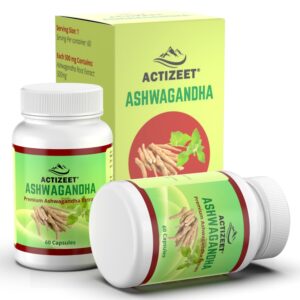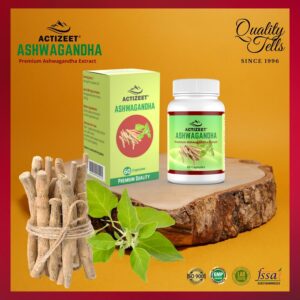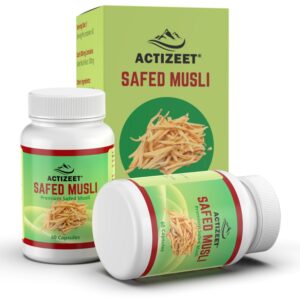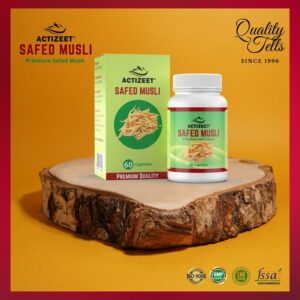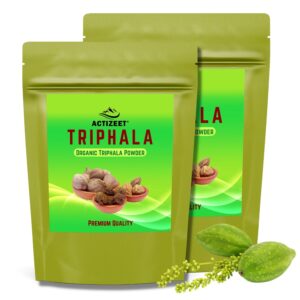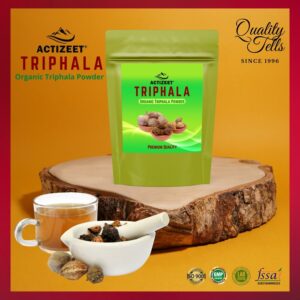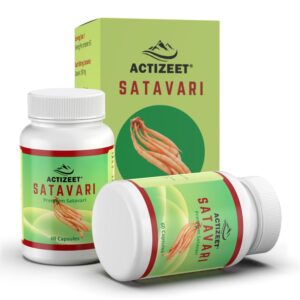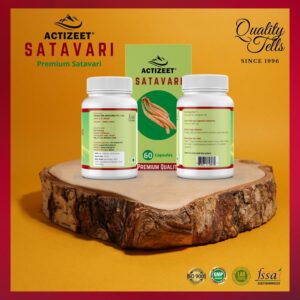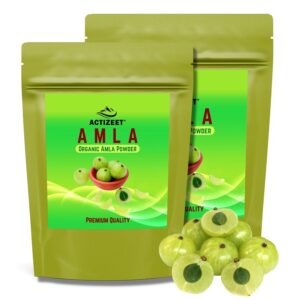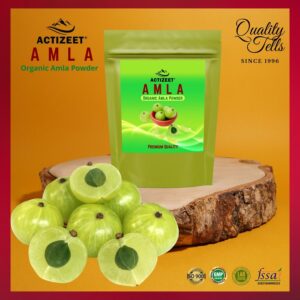Welcome, dear reader, to an enlightening journey into the world of moringa powder! In this article, we will unveil the mysteries surrounding this miraculous green superfood and delve into the intriguing question: how long does moringa powder last? Prepare to be captivated by the wonders of nature and gain a deeper understanding of why it is essential to comprehend the shelf life of this remarkable powder.
Table of Contents
ToggleOverview of Moringa Powder
Before we embark on our exploration, let us first acquaint ourselves with moringa powder. Derived from the leaves of the mighty moringa tree (scientifically known as Moringa oleifera), this vibrant green powder is a powerhouse of nutrients.
It contains a rich assortment of vitamins, minerals, antioxidants, and amino acids that contribute to its well-deserved status as a superfood. Moringa powder has been used for centuries in traditional medicine systems due to its numerous potential health benefits.
From boosting immunity to promoting digestion and supporting overall well-being, this versatile herbal supplement has garnered worldwide attention for its potential therapeutic properties. Whether you mix it into smoothies or sprinkle it over your favourite dishes, incorporating moringa powder into your diet can be an excellent way to fortify your nutritional intake.
Importance of Understanding Its Shelf Life
Now that we have established what moringa powder is all about, let’s turn our attention to its shelf life, an often overlooked but vital aspect when it comes to any consumable product. Understanding how long moringa powder lasts is crucial, not only for maintaining its potency but also for ensuring that you get the most out of each gram.
By comprehending the factors that influence the shelf life of moringa powder and implementing proper storage practices, you can preserve its freshness and nutritional value, consequently maximizing its potential health benefits. Moreover, being aware of the shelf life empowers you to make informed choices when purchasing moringa powder, ensuring that you select a high-quality product that aligns with your needs.
Shelf Life of Moringa Powder
Understanding the shelf life of moringa powder is crucial for anyone who wants to fully enjoy its benefits. The shelf life refers to the period during which the powder retains its quality, potency, and nutritional value. Various factors can influence how long moringa powder lasts, including processing methods, the quality of the raw materials used, packaging, and storage conditions.
Factors influencing the shelf life
The first factor that affects the shelf life of moringa powder is the processing method employed during production. High-quality moringa powders are made using gentle drying techniques such as shade drying or low-heat dehydration.
These methods help preserve vital nutrients and enzymes present in the leaves. The second factor is the quality of the raw materials used.
Moringa leaves should ideally be harvested when they are still young and vibrant, as they contain higher levels of nutrients compared to mature leaves. Additionally, leaves obtained from organic farming practices without exposure to harmful pesticides or chemicals tend to produce superior-quality powders with a longer shelf life.
Packaging and storage conditions
The way moringa powder is packaged plays a significant role in determining its shelf life. Vacuum-sealed packaging helps protect against moisture and oxygen exposure that can accelerate degradation.
This type of packaging is often seen in high-quality brands that prioritize product longevity. However, even with resealable bags or containers, it’s important to store moringa powder properly for optimal preservation.
Keeping it away from direct sunlight and storing it in a cool place (ideally below 77°F or 25°C) can help prevent nutrient loss due to heat exposure. Additionally, protecting it from humidity by storing it in a dry environment ensures that moisture does not degrade its quality.
Determining Shelf Life
When it comes to assessing the shelf life of moringa powder, sensory evaluation techniques play a vital role. These techniques involve observing and analyzing the colour, aroma, and taste of the powder. By paying close attention to these factors, you can determine whether the powder has started to deteriorate or spoil.
Color, Aroma, and Taste Assessment
The colour of moringa powder is an essential indicator of its freshness. Freshly produced powder typically has a vibrant green hue due to its high chlorophyll content. Over time, exposure to light and air can cause the colour to fade or turn brownish.
If you notice a significant change in color, it may indicate that the powder is approaching its expiration date. Apart from colour assessment, examining the aroma is crucial in determining the quality of moringa powder.
Freshly harvested moringa leaves emit a pleasant grassy fragrance. As time goes by, this aroma may weaken or become stale.
Sniff the powder gently, and if you detect any off-putting odours like mustiness or fermentation, it’s a sign that the product has gone bad. Taste assessment entails sampling a small amount of moringa powder dissolved in water or added to food preparations.
The flavour profile should be mildly earthy with slightly bitter undertones. If you notice any rancid or unpleasant tastes, such as sourness or moldiness, upon tasting it, it’s an indication that the quality has deteriorated.
Visual Inspection for Signs of Spoilage
In addition to sensory evaluation techniques like assessing colour, aroma, and taste, visually inspecting moringa powder for signs of spoilage is equally important. Look out for any clumping or lump formation in the powder, as this may indicate the presence of moisture or mould growth. Ideally, moringa powder should be free-flowing and evenly textured.
Furthermore, check for any visible discolouration or dark spots on the powder’s surface. These can be indicative of oxidation or microbial contamination.
Additionally, if you come across any pests or insects in the packaging, it’s a clear sign that the product has been compromised and should not be consumed. By employing these sensory evaluation techniques and conducting visual inspections, you can confidently determine whether your moringa powder is still safe to use or if it has surpassed its shelf life.
Average Shelf Life Expectancy
Unopened Moringa Powder
When it comes to unopened moringa powder, the shelf life can vary depending on the packaging. One of the most effective ways to preserve its freshness is through vacuum-sealed packaging. This method involves removing all the air from the package before sealing it, creating a tightly sealed environment.
When stored in this manner, moringa powder can last up to an impressive 2 years. On the other hand, if you have moringa powder in resealable bags, its shelf life expectancy is slightly shorter.
These bags offer some protection against air and moisture but do not provide the same level of airtightness as vacuum-sealed packaging. Typically, you can expect resealable bags to keep your moringa powder fresh for around a year.
It’s important to note that these durations are approximate estimates based on optimal storage conditions. Factors like processing methods and the quality of raw materials can also influence the overall shelf life of moringa powder.
Therefore, it’s advisable to check for any signs of spoilage or degradation before consuming expired products. Remember that once you open a package of moringa powder, its shelf life will be significantly reduced due to exposure to air and moisture.
To make sure you get the most out of your powdered superfood, it’s best to use it within six months after opening. Now that we’ve covered how long unopened packages last, let’s explore some tips for storing your moringa powder properly!
Storage Tips for Extended Shelf Life
Temperature and Humidity Control
When it comes to storing moringa powder and ensuring its longevity, one of the most crucial factors to consider is temperature control. Moringa powder is incredibly sensitive to heat, which can accelerate its degradation process.
Therefore, it is important to store it in a cool and dry place. The ideal storage temperature for moringa powder is below 77°F (25°C).
Exposing the powder to temperatures higher than this can lead to nutrient loss and the deterioration of its vibrant green colour. So, avoid storing it in areas that are prone to heat fluctuations, such as near stoves or ovens.
Low-Humidity Environment to Prevent Moisture Absorption
In addition to temperature control, maintaining a low-humidity environment is equally vital for the extended shelf life of moringa powder. High humidity levels can cause moisture absorption, leading to clumping and spoiling the powder over time.
Avoid storing moringa powder in areas with high humidity levels, such as bathrooms or basements. Instead, opt for dry storage spaces like kitchen cabinets or pantries that have good ventilation.
If you live in an area with consistently high humidity, consider using moisture-absorbing packets or silica gel packs within the packaging of your moringa powder. This helps prevent any moisture from damaging its quality.
Extending Shelf Life Naturally
Use of oxygen absorbers or desiccants in packaging
When it comes to prolonging the shelf life of moringa powder, one effective method is utilizing oxygen absorbers or desiccants in the packaging. These small sachets contain materials that actively absorb moisture and reduce oxygen levels within the package.
By limiting the presence of oxygen, which can contribute to oxidation and rancidity, these absorbers play a crucial role in preserving the quality of moringa powder. The primary function of oxygen absorbers is to remove excess oxygen from the packaging environment.
This process helps minimize oxidative reactions that lead to nutrient degradation and flavour loss over time. On the other hand, desiccants focus on reducing moisture content by absorbing any residual moisture present in the package.
By maintaining low humidity levels, desiccants prevent microbial growth, clumping, and spoilage caused by moisture absorption. These combined efforts create an environment that inhibits oxidation processes and microbial activity, thereby extending the shelf life of moringa powder.
Role in reducing oxygen levels and moisture content
Oxygen absorbers work through a chemical reaction known as oxidation-reduction. They typically contain iron or iron compounds packed with salt or activated carbon to speed up the absorption process.
When placed inside a sealed package with moringa powder, these absorbers actively pull in surrounding oxygen molecules until their capacity is reached. As a result, they help maintain an anaerobic (oxygen-free) environment within the packaging.
Apart from reducing oxygen levels, desiccants play a vital role in controlling moisture content within packages containing moringa powder. They consist of porous substances like silica gel or clay that have a high affinity for water molecules.
Once enclosed within a sealed package alongside the powder, these materials adsorb any remaining moisture present inside it. By minimizing moisture levels, desiccants prevent the growth of mould, bacteria, and other microorganisms that thrive in humid conditions.
This moisture control also prevents clumping or caking of the powder, ensuring its free-flowing and usable state throughout its shelf life. With the combined effort of oxygen absorbers and desiccants, moringa powder can maintain its freshness and nutritional value for an extended period, providing you with a high-quality product even beyond its initial packaging date.
Signs of Spoilage or Degradation
Oxidation Indicators
Moringa powder, like many other natural products, is susceptible to oxidation. Oxidation occurs when the powder comes into contact with oxygen, causing it to deteriorate and lose its potency over time.
One of the primary indicators of oxidation is a noticeable change in color. Fresh and high-quality moringa powder typically has a vibrant green hue, but as it oxidizes, it may gradually turn brownish or even dull grey.
Change in Color (Turns Brownish)
If you notice that your moringa powder has changed from its original bright green colour to a more brownish tone, it is a clear sign that the product has undergone some level of spoilage or degradation. While slight discolouration may not necessarily make the powder unsafe for consumption, it does indicate a loss of nutritional value.
The vibrant green color of moringa powder is attributed to its rich antioxidants such as chlorophyll and flavonoids which contribute to its health benefits. As these antioxidants degrade due to factors like exposure to light or improper storage conditions, the colour change becomes more apparent.
Unpleasant Odor or Rancid Taste
Another telltale sign that your moringa powder has spoiled is an unpleasant odour or rancid taste. Freshly packaged and high-quality moringa powder should have a mild, earthy aroma with no foul smells.
If you detect any musty, sour, or off-putting odour upon opening the package, it’s likely an indication that the product has gone bad. Similarly, when mixed with water or other liquids and consumed, if your moringa powder imparts an unpleasant taste that deviates from its usual mild flavour profile, this suggests spoilage as well.
It is crucial to be mindful of these signs, as consuming spoiled moringa powder may have adverse effects on your health. Therefore, it’s always better to err on the side of caution and discard any moringa powder that exhibits these spoilage indicators.
Utilizing Expired Moringa Powder Safely
Potential risks associated with consuming expired powder
When it comes to expired moringa powder, caution is key. Consuming moringa powder that has gone past its shelf life can pose certain risks to your health. Over time, the nutritional potency of the powder may decrease significantly, resulting in a loss of essential vitamins, minerals, and antioxidants.
This can compromise the benefits you expect from consuming moringa powder in the first place. Furthermore, expired moringa powder is more susceptible to oxidation and microbial growth.
The degradation of its components may give rise to harmful bacteria or fungi that could potentially cause foodborne illnesses or digestive issues when consumed. It’s essential to be aware of these risks and make an informed decision before using expired moringa powder as a dietary supplement.
Possible alternative uses (e.g., as fertilizer)
While ingesting expired moringa powder may not be advisable, there are alternative ways to put it to good use without compromising your health. One such alternative is utilizing it as a natural fertilizer for plants. Moringa contains beneficial nutrients like nitrogen, phosphorus, and potassium, which are vital for plant growth.
Mix the expired powder into the soil before planting or sprinkle it around existing plants as a nutrient boost. Another creative way to repurpose expired moringa powder is by incorporating it into homemade skincare products such as scrubs or face masks.
Due to its natural exfoliating properties and rich antioxidant content, moringa can help rejuvenate your skin by removing dead cells and promoting a healthy glow. Remember, when using expired moringa powder for non-consumable purposes like fertilizing or skincare applications, always check for signs of spoilage, such as changes in colour or odor, before use.
Conclusion
Moringa powder has gained popularity for its numerous health benefits and versatile uses. However, it is essential to understand the shelf life of this potent superfood to ensure its freshness and potency.
By knowing how long moringa powder lasts, you can make informed decisions about purchasing, storing, and consuming it. Throughout this article, we explored various factors that influence the shelf life of moringa powder, including processing methods, packaging, and storage conditions.
We also discussed sensory evaluation techniques to determine if the powder has spoiled or degraded. Additionally, we delved into average shelf life expectations for both unopened and opened packaging.
One key takeaway is that proper storage plays a vital role in extending the shelf life of moringa powder. Controlling temperature and humidity levels is crucial to preventing oxidation and moisture absorption.
We also highlighted natural ways to extend its shelf life using oxygen absorbers or desiccants in packaging. Overall, understanding the shelf life of moringa powder empowers consumers to make informed choices regarding quality and freshness.
By adhering to proper storage practices and being mindful of signs of spoilage or degradation, you can enjoy the full benefits of this remarkable superfood for an extended period of time. So next time you reach for that jar of moringa powder or consider purchasing a new package, remember these key points: Choose high-quality sources with reliable processing methods; store your moringa powder in optimal conditions—cool and dry; conduct sensory evaluations periodically; explore alternative uses if your powder has expired, but use caution when doing so; and most importantly, savour the vibrant colour, aroma, taste, and health benefits that fresh moringa brings into your life!
ACTIZEET Moringa Powder
-
Rated 4.85 out of 5
₹1,200.00Original price was: ₹1,200.00.₹900.00Current price is: ₹900.00. Incl. GST ADD TO CART Buy Now -
Rated 4.84 out of 5
₹3,600.00Original price was: ₹3,600.00.₹2,100.00Current price is: ₹2,100.00. Incl. GST ADD TO CART Buy Now -
Rated 4.80 out of 5
₹2,400.00Original price was: ₹2,400.00.₹1,600.00Current price is: ₹1,600.00. Incl. GST ADD TO CART Buy Now
Related Products
-
Himalayan Shilajit, Pure shilajit, Shilajit, SHUDDH SURYA TAPI SHILAJIT
Rated 4.74 out of 5₹4,950.00Original price was: ₹4,950.00.₹3,950.00Current price is: ₹3,950.00. Incl. GST ADD TO CART Buy Now -
Rated 4.86 out of 5
₹2,400.00Original price was: ₹2,400.00.₹1,600.00Current price is: ₹1,600.00. Incl. GST ADD TO CART Buy Now -
Rated 4.82 out of 5
₹2,400.00Original price was: ₹2,400.00.₹1,600.00Current price is: ₹1,600.00. Incl. GST ADD TO CART Buy Now -
Rated 4.84 out of 5
₹2,400.00Original price was: ₹2,400.00.₹1,600.00Current price is: ₹1,600.00. Incl. GST ADD TO CART Buy Now
-
Rated 4.00 out of 5
₹2,400.00Original price was: ₹2,400.00.₹1,600.00Current price is: ₹1,600.00. Incl. GST ADD TO CART Buy Now -
Rated 4.80 out of 5
₹2,400.00Original price was: ₹2,400.00.₹1,600.00Current price is: ₹1,600.00. Incl. GST ADD TO CART Buy Now -
Rated 4.71 out of 5
₹2,400.00Original price was: ₹2,400.00.₹1,600.00Current price is: ₹1,600.00. Incl. GST ADD TO CART Buy Now -
Rated 0 out of 5
₹2,400.00Original price was: ₹2,400.00.₹1,600.00Current price is: ₹1,600.00. Incl. GST ADD TO CART Buy Now
Related posts:
- Moringa Powder: Expiration Date & Shelf Life Explained
- Unlocking the Secret: How Moringa Powder is Made
- Moringa Powder in Panaji (Goa)
- Moringa Powder in Gangtok (Sikkim)
- Moringa Powder in Imphal (Manipur)
- Moringa Powder in Aizawl (Mizoram)
- Moringa Powder in Kochi (Kerala)
- Moringa Powder in Agartala (Tripura)

